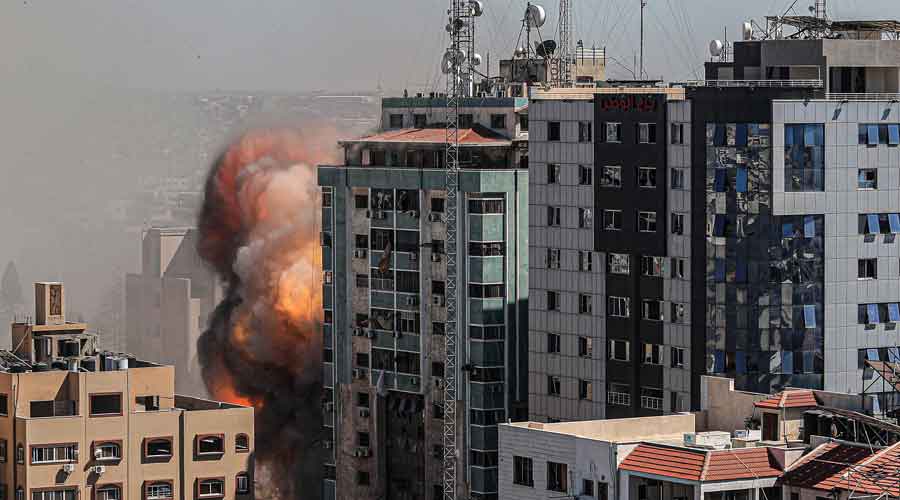A cricket club in the southern Israeli city of Beersheba has come to the rescue of several Indian researchers at the Ben-Gurion University of the Negev, who had been struggling for a proper shelter while being under a complete siege with rockets raining during the past week.
The Beersheba Cricket Club building, a two-storeyed structure close to the varsity, which is actually a shelter house with an underground floor, opened its door for the local residents immediately after rockets launched by Palestinian militants started to fall on Israel’s southern areas and also extended the kind gesture to Indian researchers at the institution who were looking for proper protection during distressed times.
“Some of the Indian researchers also play for the cricket club and are like part of our family. But we told them that anybody looking for a safe shelter is welcome to use our facility,” said Naor Gudker, the club chairman.
“There are several Indian researchers staying with us during the past week, both boys and girls, and we have tried to make things as comfortable as possible, extending them all possible help. Some of them are not fully aware of the safety regulations and me and my colleagues have tried to make them aware of all the precautions to be taken to keep them safe.”
The club members have been taking turns and voluntarily attending the facility in shifts to look after the residents lacking safe houses and also foreigners, mostly Indian researchers.
Viraj Bhingardive, Heena Khand, Shashank Shekhar, Rudraru Senguta and Bishnu Khand, some of the doctoral and post-doctoral fellows, taking refuge at the club, expressed their gratitude towards the generosity of the hosts and its management.
“We can sleep here knowing we are safe,” one of them said, adding, “there hasn’t been a quiet night since last Monday”.
“The club has not only made Indian students feel secure but, in a way, has been pampering them. They have access to snacks, tea and coffee and can use the gym and the entertainment system… it helps distract us from the ongoing misery”, said Ankit Chauhan, a doctoral student.











